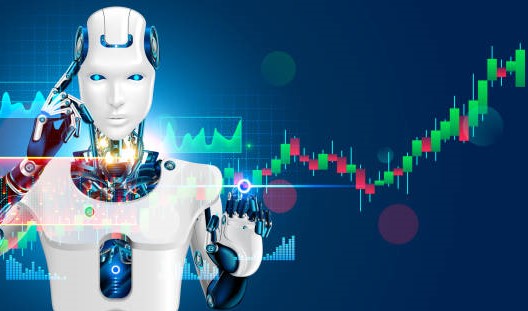Introduction
Marketing is one of the most dynamic and competitive fields in the business world. To stand out from the crowd and attract more customers, you need to constantly innovate and adapt to the changing market trends and customer preferences. But how can you do that without spending a fortune or wasting a lot of time?
The answer is AI. Artificial intelligence, or AI, is the technology that enables machines to perform tasks that normally require human intelligence, such as understanding language, recognizing images, making decisions, and learning from data. AI can help you automate and optimize various aspects of your marketing strategy, such as content creation, audience segmentation, personalization, lead generation, customer retention, and more.
In this post, we will show you how to use AI to boost your marketing performance and achieve your business goals. We will explain what AI can do for your marketing, how to choose the right AI tools and platforms for your needs, and how to implement AI in your marketing campaigns. By the end of this article, you will have a clear idea of how to leverage AI for marketing success.
What AI Can Do for Your Marketing
AI can help you improve your marketing in many ways. Here are some of the main benefits of using AI for marketing:
- AI can help you create better content. Content is king in marketing, but creating high-quality and engaging content can be time-consuming and challenging. AI can help you generate content faster and easier by using natural language processing (NLP) and natural language generation (NLG) techniques. NLP is the ability of machines to understand and analyze human language, while NLG is the ability of machines to produce human-like text. With AI, you can create content such as headlines, captions, summaries, blog posts, social media posts, emails, landing pages, and more. You can also use AI to optimize your content for SEO and readability.
- AI can help you segment and target your audience. Knowing your audience is crucial for marketing success, but it can be hard to collect and analyze data about your customers and prospects. AI can help you segment and target your audience more effectively by using machine learning (ML) and deep learning (DL) techniques. ML is the ability of machines to learn from data and make predictions, while DL is a subset of ML that uses neural networks to mimic the human brain. With AI, you can segment and target your audience based on their demographics, behaviors, interests, preferences, needs, pain points, and more. You can also use AI to predict their future actions and intentions.
- AI can help you personalize your marketing. Personalization is key to marketing success, but it can be hard to deliver relevant and tailored messages to each customer and prospect. AI can help you personalize your marketing more efficiently and effectively by using recommender systems (RS) and chatbots. RS are systems that use ML and DL to provide personalized suggestions or recommendations based on user data. Chatbots are conversational agents that use NLP and NLG to interact with users via text or voice. With AI, you can personalize your marketing by providing customized offers, products, services, content, ads, emails, messages, and more. You can also use AI to enhance your customer experience and loyalty.
- AI can help you generate and nurture leads. Lead generation and nurturing are essential for marketing success, but they can be costly and time-consuming. AI can help you generate and nurture leads more effectively by using computer vision (CV) and sentiment analysis (SA). CV is the ability of machines to understand and process visual information such as images or videos. SA is the ability of machines to identify and extract emotions or opinions from text or speech. With AI, you can generate leads by using a CV to recognize faces or logos in images or videos or by using SA to detect positive or negative sentiments in social media posts or reviews. You can also nurture leads by using a CV to track eye movements or facial expressions or by using SA to gauge customer satisfaction or dissatisfaction.
How to Choose the Right AI Tools and Platforms for Your Needs
- Your goals: What are you trying to achieve with AI? Do you want to create better content? Segment and target your audience? Personalize your marketing? Generate and nurture leads? Or something else? Your goals will determine what kind of AI tools and platforms you need.
- Your budget: How much are you willing to spend on AI tools and platforms? AI can be expensive or affordable depending on the features, quality, and complexity of the tools and platforms you choose. You need to consider your budget and compare the costs and benefits of different options.
- Your skills: How proficient are you with AI tools and platforms? AI can be easy or hard to use depending on the level of technical expertise and support required. You need to consider your skills and choose the tools and platforms that match your abilities and needs.
- Your data: How much and what kind of data do you have for AI? AI can be more or less effective depending on the quantity, quality, and diversity of the data you provide. You need to consider your data and choose the tools and platforms that can handle and process it properly.
To help you choose the right AI tools and platforms for your needs, here are some examples of popular and reputable options that you can explore:
- Content creation: Some of the AI tools and platforms that can help you create better content are: Linguix, Grammarly, Copysmith, Copy.ai, Jarvis, Phrasee, Quillbot, Wordtune, Snazzy, Writesonic, etc.
- Audience segmentation and targeting: Some of the AI tools and platforms that can help you segment and target your audience are: Segment, Optimove, Personyze, Lytics, Emarsys, Exponea, Zaius, HubSpot, Salesforce, etc.
- Personalization: Some of the AI tools and platforms that can help you personalize your marketing are: Dynamic Yield, Monetate, Evergage, RichRelevance, Kibo, OneSpot, Boomtrain, Drift, Intercom, etc.
- Lead generation and nurturing: Some of the AI tools and platforms that can help you generate and nurture leads are: Leadfeeder, Clearbit, Lusha, ZoomInfo, Leadspace, Marketo, ActiveCampaign, Mailchimp, etc.
How to Implement AI in Your Marketing Campaigns
Once you have chosen the right AI tools and platforms for your needs, you need to implement them in your marketing campaigns. Here are some steps that you can follow to do that:
- Define your objectives: Before you start using AI for your marketing campaigns, you need to define your objectives clearly. What are you trying to achieve with AI? How will you measure your success? What are your key performance indicators (KPIs)? Having clear objectives will help you align your AI strategy with your marketing goals and track your progress and results.
- Collect and prepare your data: To use AI for your marketing campaigns, you need to collect and prepare your data properly. You need to gather enough data from various sources such as your website, social media, email, CRM, etc. You also need to clean, label, and format your data so that it is ready for analysis and processing by AI tools and platforms. Having good data will help you get better insights and outcomes from AI.
- Train and test your AI models: To use AI for your marketing campaigns, you need to train and test your AI models properly. You need to feed your data to the AI tools and platforms and let them learn from it and make predictions or recommendations. You also need to test your AI models on different scenarios and situations and evaluate their performance and accuracy. Having reliable and robust AI models will help you get better results and outcomes from AI.
- Launch and monitor your AI campaigns: To use AI for your marketing campaigns, you need to launch and monitor your AI campaigns properly. You need to integrate your AI tools and platforms with your marketing channels and platforms such as your website, social media, email, etc. You also need to monitor your AI campaigns regularly and measure their impact and effectiveness on your KPIs. Having effective and efficient AI campaigns will help you achieve your marketing objectives and goals.
Thoughts
AI is a powerful technology that can help you boost your marketing performance and achieve your business goals. By using AI, you can create better content, segment and target your audience, personalize your marketing, generate and nurture leads, and more. However, to use AI successfully, you need to choose the right AI tools and platforms for your needs and implement them in your marketing campaigns properly. By following the steps and tips in this guide, you can leverage AI for marketing success.



